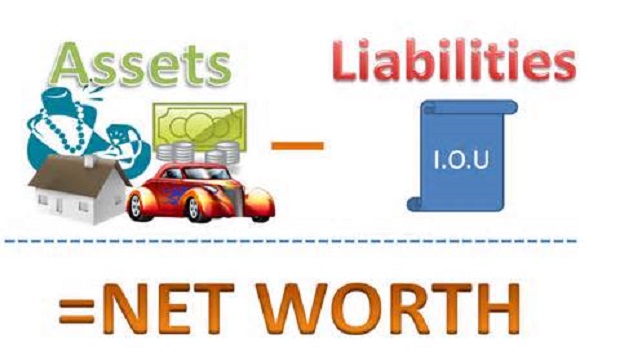Forbes list of Billionaires and their net worth never fails to gather interest of one and all. We often read with great interest, news that ‘Mukesh Ambani ‘s net worth is 36 B USD, Sachin Bansal is over $1 B USD etc. Let’s explore what this means and why it is important.
What does a Net worth Mean?
Net worth is the net of what you own over what you owe, i.e Assets over the liabilities. For a company this information is captured in the Balance Sheet and is updated at the end of an year.
Why is Net worth Important?
While your personal Income and Expenses statement that we earlier saw captures your current earning, spending and savings on a monthly basis, Net worth is the end result or your progress card of how well you have done so far with your Income and Expenses.
Your Personal Balance sheet/Net worth is an indicator of your resilience to impact in your earning ability. This is why bank’s ask for surety when they extend a loan.

How have we used it?
In addition to diligently tracking our expenses every day and having a monthly account of the same, we also have a ‘Personal Balance sheet’ that is updated quarterly/annually. Our Net worth gave us the assurance that we will be able to survive one year of India360 without a serious dent in our retirement savings. Our financial discipline over the years, had come really handy. And the final math gave us the courage that such a trip was possible.
How can you get your own ‘Personal Balance sheet’/Asset and Liabilities Statement:
Pool all your assets on one side and put a conservative value for them. Your assets would include the below:
Personal Assets:
- Cash
- Bank Balance in Savings and Current
- Fixed/Recurring Deposits
- PF/PPF/EPF aka Retirement Savings
- Insurance (Consider only surrender value if any)
- Shares (Current Market Price @ 75%)
- Gold Ornaments/Bonds (Market Rates @90%)
- Loans to be recovered
- Home (Expected Sale Proceeds)
- Car/Bike (Expected Sale Proceeds)
-> All assets are to be valued at what it will realise on sale. If you don’t intend to sell ever due to sentimental reasons or it cannot be sold due to litigation or government regulation, it is better to not put a value against it.
-> Volatile assets like shares are better to be considered at a discount. You can consider the haircut used by user Broker as a guideline if you want to a share by share valuation.
-> If the loans given out are not likely to come back, don’t include.
-> If you are the joint owner of a property, take only the % that belongs to you. For ex: 25% of the ancestral property value.
-> You can keep the process simple without putting a % discount, which is what I normally do. However if you are going to use it to take any key decisions in your life like investing a huge money into a business, quitting your job and going solo, ensure that these variations in value are sufficiently covered in your estimation.
Personal Liabilities:
These would include
- Your Outstanding Loan Amount(Personal/Car/Home/Business/Gold)
- Any mandatory payments such as IT dues, Insurance etc
-> Even if you have not included the asset like home/car on the asset side, any loans obtained for it or on it has to be listed in the liabilities column.
– > Any amounts under dispute that may have to be paid out in the future also needs to be captured to give a better picture.

The difference between the two is your Net worth. If you have more liabilities than assets, then you have a negative net worth.
Whether your life goal is to take a Europe Tour for a month, Have a baby, Try a new business, knowing your net worth can help you plan better and enjoy your journey in life.
So what is your net worth? Are you on target for your early retirement plans? Do you need a second income to support the new addition in your family?
Good one. Knowing net worth is helpful for drawing personal balance sheet and targets for upcoming years.
Thanks Parag. It is as essential for every person and family as it is for a company 🙂
Great article. Indeed knowing your net worth always gives you clarity about what you can do and whether you can take a decision that would affect your finances going forward.
Yeah. Knowing where we stand provides us greater clarity on how far we are from where we want to go and a better understanding of our options in life.